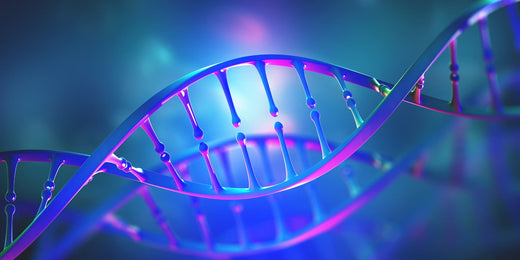What is Autophagy and Why It’s Good For You

Auto what? Autophagy. Pronounced ah-tah-fuh-gee.
If you’ve been in the fasting circles for any amount of time you’ve heard this funny sounding word.
But you might still not understand exactly what it means. Let’s break it down (pun intended!).
What is autophagy anyway?
Ever had the urge to go through all your closets and drawers and toss out the things you’re no longer using that are just taking up space?
Clothes that don’t fit anymore, broken remote controls, the random VHS tape from way back when … you know … junk.
You throw it all out, and then of course you have to go buy new stuff.
Now you have an idea of what autophagy does for the body.
Specifically, autophagy is a metabolic process whereby the body breaks down old cells and tissues that are no longer needed or useful, and makes room for the new.
It’s literally part of the body’s very own built-in recycling system. How cool is that?
How does autophagy work?
Like many of the body’s processes, autophagy is regulated by hormones. In this case, glucagon and insulin.
- Glucagon turns on autophagy
- Glucagon goes up when insulin goes down
- Insulin goes down when you don’t eat
So it’s easy to see why fasting promotes autophagy, because when you fast insulin decreases, glucagon increases, and autophagy is ramped up.
Another way to look at it is that autophagy is a response to stress.
Fasting is a positive stress. And the body’s response is to say, “Uh oh, there’s no food coming in, something must be wrong, we better clean up and get prepared.”
And this cleaning up is exactly what you want.
What are the benefits of autophagy?
Autophagy has been referred to as the “fountain of youth” because it literally seems to slow down the aging process.
- Autophagy plays a big role in brain health, helping to prevent diseases such as dementia and Alzheimer’s Disease.
- Risks of heart and cardiovascular diseases are decreased through the work of autophagy
- Some metabolic diseases such as Type II diabetes can be prevented and even reversed
- Because autophagy is cleaning out all those damaged cells, there is evidence that autophagy can reduce your risk of developing cancer.
Also, here’s a big added benefit of autophagy: often when people lose a lot of fat they end up with loose skin, but autophagy can help with that!
Because autophagy is literally the body eating itself (auto=self and phagy=eating), someone who loses a lot of fat through fasting will often not have as much loose skin as someone who lost it though dieting.
How’s that for a bonus?
How long do I have to fast to get autophagy?
Studies indicate that autophagy peaks at around 36 hours up through about 48 to 72 hours. After that it begins to level back off some.
This is why many people choose to do rolling 36, 48, or 72 hour fasts, because they can continually get into the sweet spot for autophagy and reap those benefits.
What turns off autophagy?
Basically, eating or drinking anything besides water, and plain tea or coffee, turns off this recycling system. Or at least slows it down (there is always some level of self-healing present in the body).
The idea is that anything that raises insulin will hinder autophagy.
Because remember, when insulin goes up, glucagon does down. And it is glucagon that stimulates autophagy.
Do I have to fast? Are there other ways to get autophagy?
While fasting is by far the best way, a keto or carnivore diet also stimulates some level of autophagy.
This is because these diets are higher in fat and lower in carbs, so insulin levels are lower.
Exercise can promote autophagy to some degree.
And it is also believed that coffee (no sugar, please) can induce autophagy.
But again, nothing is going to boost autophagy as effectively as fasting.
And you don’t have to do long extended fasts. Even if you only did one 72 hour fast a week, you would still benefit.
Aiming for Autophagy!
With intermittent or extended fasting you can boost autophagy and give yourself the best shot at a longer, healthier, happier life.
And then you can go tackle those junk drawers.

